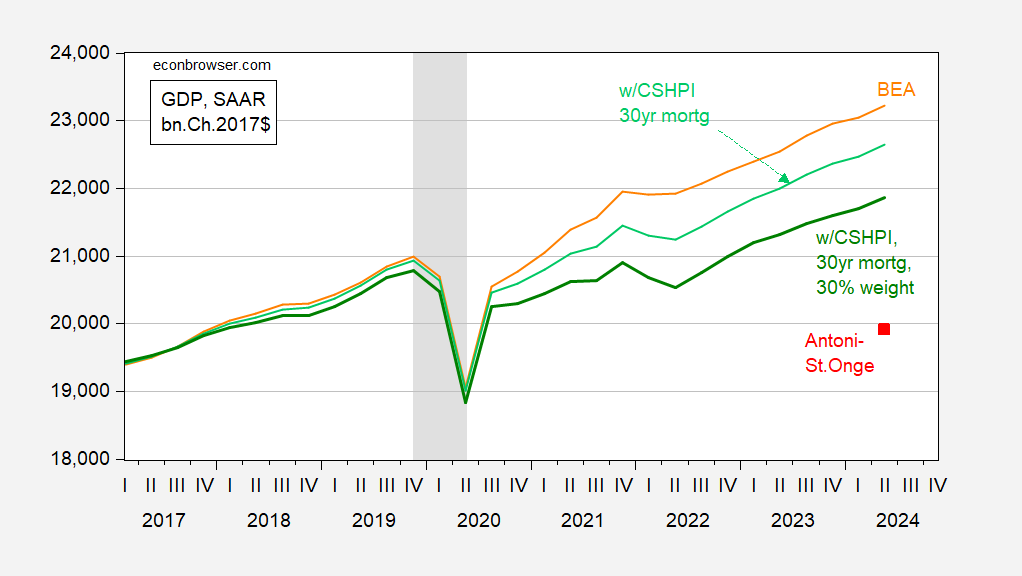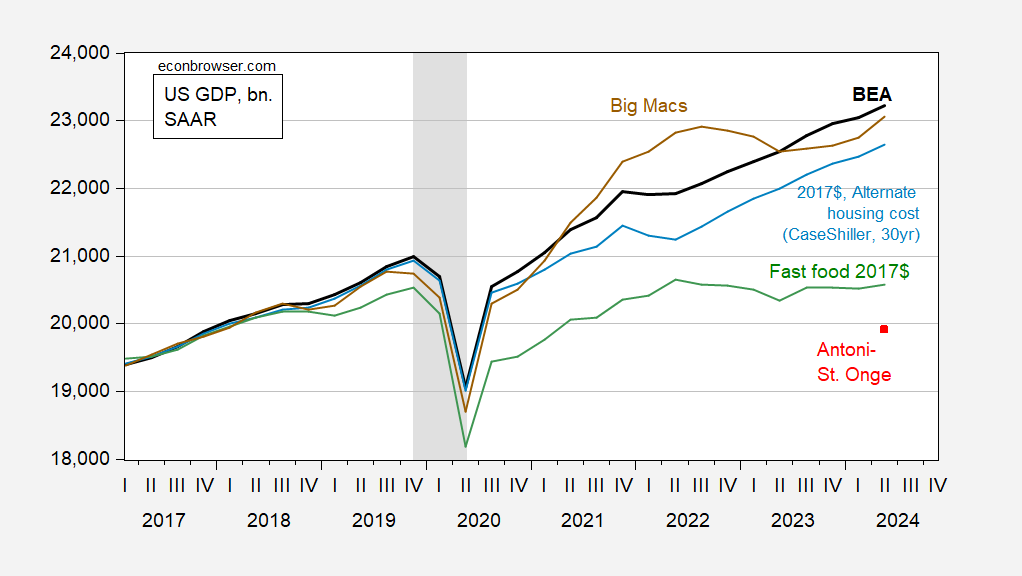That’s the title of this article.
Heritage Foundation Research Fellow EJ Antoni and Mises Institute Fellow Peter St Onge compiled the report for the Brownstone Institute for Social and Economic Research, a think tank that supports individual rights.
“When you correct government inflation statistics, it turns out we’ve been in recession since 2022,” St Onge wrote in an X (formerly Twitter) post unveiling the study last week.
I’ve rebutted this argument here – in particular there is no evidence the two authors have “corrected” the government inflation statistics. They have provided (with no documentation) their alternative inflation statistics. In particular, I’ve shown that the Antoni-St. Some statistics are implausible. (There is also the question whether it is more appropriate to use house prices and interest rates than some sort of estimated owner equivalent rent).

Figure 1: BEA GDP (orange), GDP incorporating PCE using Case-Shiller House Price Index – national times mortgage rate factor index, using BEA weight of 15% (light green), using 30% (dark green), Antoni-St.Onge estimate ( red square), all in bn.Ch.2017$ SAAR. NBER defined peak-to-trough recession dates shaded gray. Source: BEA, S&P Dow Jones, Fannie Mae via FRED, NBER, and author’s calculations.
In fact, the closest I can come to replicating their GDP level (and recession since 2022) is to assume the increase in the price of fast food is the appropriate inflation measure.

Figure 2: GDP in Ch.2017$ (bold black), using alternative consumption deflator, housing-in-PCE weights (light blue), in 2017 fast food$ (green), in 2017 Big Macs (brown), and in 2017% per Antoni -St.Onge (red square), all in billions. Big Mac prices interpolated linearly. NBER defined peak-to-trough recession dates shaded gray. Source: BEA, BLS, NBER, and author’s calculations.
I provide the data to replicate my results here (no corresponding data are available from Antoni and St. Onge).
I will conclude by noting that Dr. Antoni declared a recession in 2022H1 (based on then released BEA data, but now not fitting due to the current vintage of data, also here), also declared that we never left recession in 2020 (so implicitly, we’ve been in recession since 2020!).


